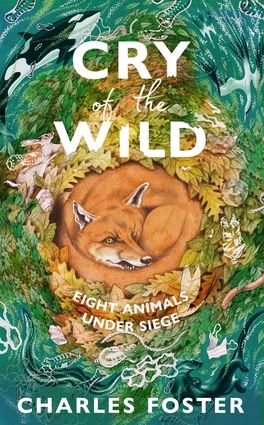Overview
A deeply researched work of creative non-fiction, these eight lyrical stories reveal the complexity, beauty and fragility of animal lives in a world dominated by humans - a brilliantly modern twist on classics like Watership Down and Tarka the Otter.
A fox, grown strong on pepperoni pizza from the dustbins of the East End, dances along a railway track towards Essex, the territory of wild foxes and wilder huntsmen.
An orca, mourning the loss of her mother in a valley west of Skye, knows that she must now lead the pod as matriarch. She swims again through her childhood, thinking about the old ways, the old roads, laid down thousands of years ago. But the old roads aren't so easy now.
At moonrise in a West Country river, an otter floats slowly downstream. The tide, though it pushes him landwards when it exhales, seems to pull him out when it inhales. He turns on his back. He can see the stars clearly for the first time and wonders if he can swim to them.
The land has never stopped waiting. It has only ever been in exile, right under our noses, waiting to confound, outrage and re-enchant.Reviews
"Foster is the kind of effortlessly adept writer likely to drive other authors to envy, and his bold gamble to break the scientific taboo around imagining animals’ interior lives pays off magnificently. Readers will be awed.” ―Starred Review Publishers Weekly
"Highly imaginative... Evocative and beautifully written, it's a deeply immersive read." —Observer
"Fiercely polemical, forcing the reader to see the world in a new light... Charles Foster is an original thinker with a strangely compelling prose style... Cry of the Wild is thought-provoking, profound, at times infused with a beautifully wistful lyricism and often witty." ― Country Life
"Foster [brings] a sense of wonder: geese fly in from the north with snow falling from their wings; imagined through the eyes of a young rabbit, a white owl wafts through the still night air like thistledown, a strangely beautiful occurrence that might at any moment end the rabbit's life... He avoids the temptations of anthropomorphism while reminding us that we who share these traits are more vulnerably and elegantly animal than we pretend." —Literary Review
"Emotional without being anthropomorphic, it is a thought-provoking read." ― BBC Wildlife Magazine
"Like Tarka, the stories in Cry of the Wild are not written for children. They take on the qualities of myth and magic which touch the source of our deepest feelings. How does the word on the printed page do this? ... the prose is muscular and astonishing... "Immersion" is a word commonly used about reading these days. I dislike it intensely. The sound of the word feels cold, unpleasant, like being pressed underwater. Not at all the deep sobbing that emerged from somewhere as I sat with these stories... This is not like any other nature book." ― Caught by the River
"Being a Human, like Being a Beast, the (also extraordinary) book that preceded it, is both a learned treatise and a kind of visionary journalism; it reports back from the edges of our cramped consciousness." ―The Atlantic
"Foster is a writer of extraordinary ability. His descriptions of nature dazzle . . . Being a Human [is] a lesson in what to watch for in nature. It’s a discourse on the sentience we may have had as early humans and that, over millennia, we’ve somehow roasted into a crisp. It’s funny. It’s moving. It’s mind-expanding. It’s a collection of thoughts to read again and again." ―Forbes on Being a HumanAuthor Biography
Charles Foster is a New York Times bestselling author whose work has been longlisted for the Baillie Gifford Prize, shortlisted for the Wainwright Prize for nature writing, and won the Ig Nobel Prize for Biology and the 30 Millions d'Amis Prize. He is a fellow of Exeter College, University of Oxford, and has particular passions for Greece, waves, the Upper Palaeolithic, mountains and swifts.

